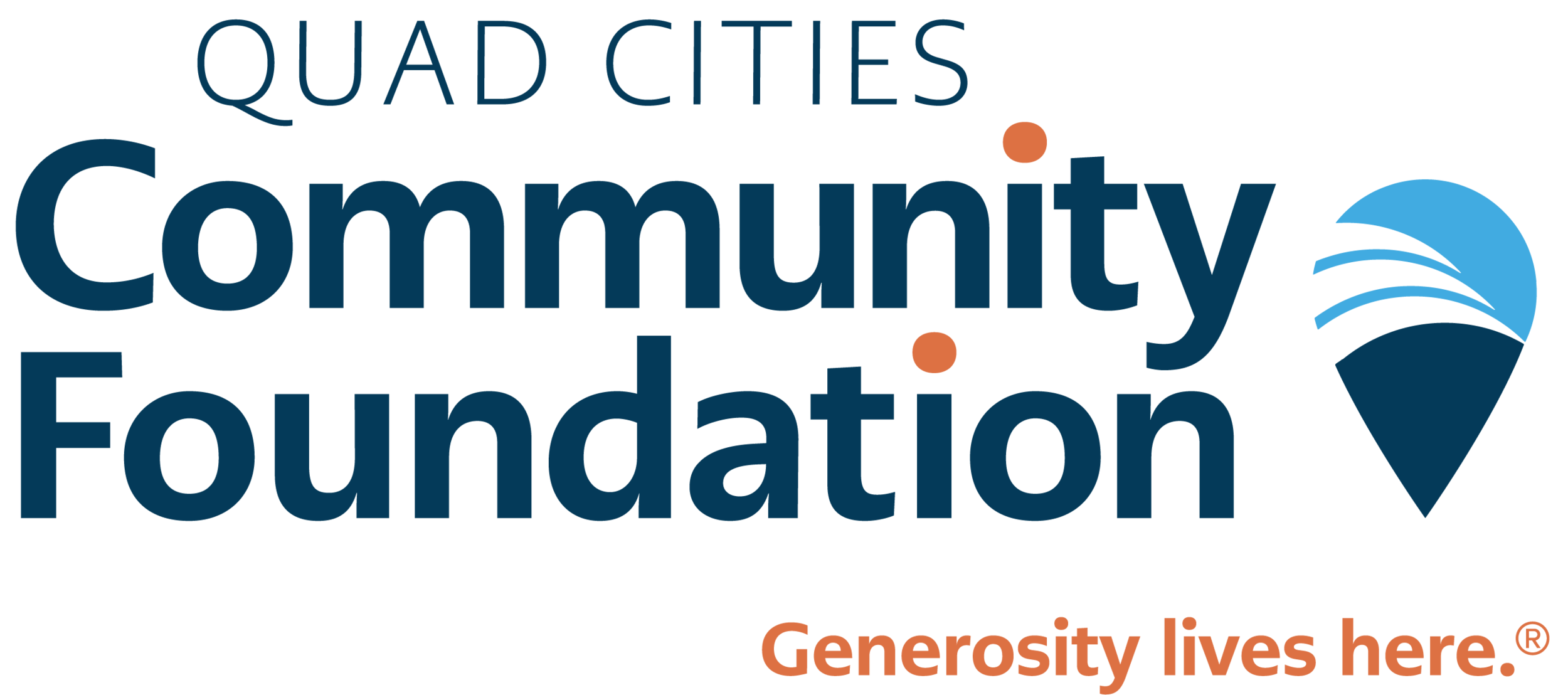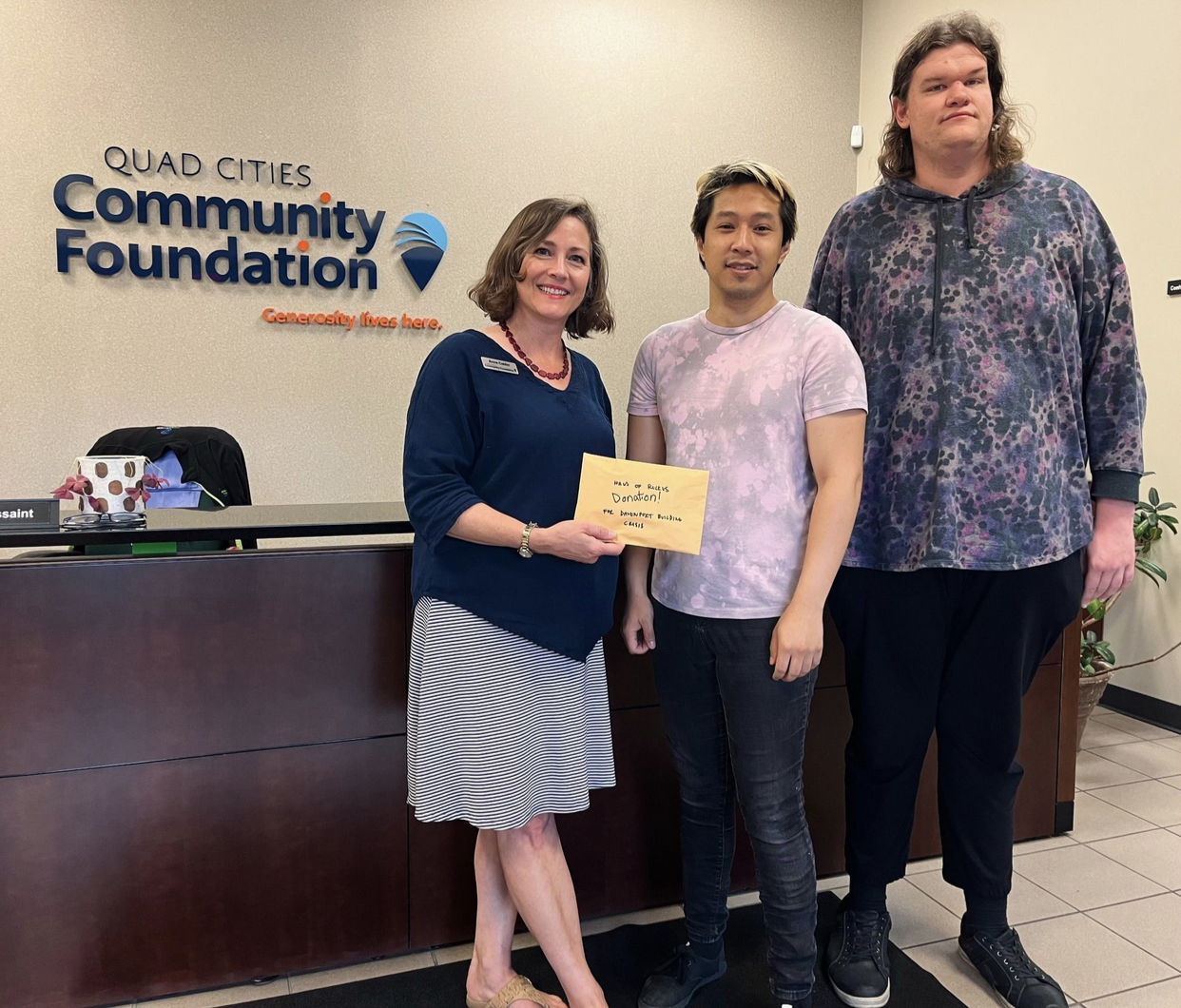How the Quad Cities came together to support households at 324 Main Street
Four months ago, disaster struck our community when the building at 324 Main Street in Davenport collapsed. Three lives were lost, and 67 households were displaced. For those who lost their homes, their family members, and their belongings, and for the nearby residents and businesses impacted, this disaster persists.
So, too, does the generosity of the community.
That generosity came from within the building itself. Davenport-based theater company Haus of Ruckus was preparing to stage a new play when the building collapse destroyed their props and set and permanently closed their production space. “We had to reconcile losing the play, losing months of work,” said Calvin Vo, co-artistic director. “But we quickly realized that our neighbors had lost so much more, and we started to figure out what we could do to help.”
What they did was stage the play anyway. “We used cardboard to replace the sets; we used materials at hand, whatever we could find,” said T Green, co-artistic director. “Two weeks after the collapse, we staged an unplugged version of the play, with all the proceeds going to those who lost their homes in the disaster.”
Haus of Ruckus’ donation to the Quad Cities Community Foundation’s Disaster Recovery Fund directly supported those who lost their homes in the collapse. “We believe art should serve the community,” said Vo. “This was a chance to put that into action.”
In response to the building collapse, businesses, local organizations like Haus of Ruckus and individual donors joined together to provide both immediate and extended support to those impacted. “Generous and heartfelt gifts came in all sizes, from Quad Citians and from people around the country and even internationally,” said Anne Calder, Community Foundation vice president of development. “Each gift brought hope and tangible relief to our neighbors in the form of phone access, housing, and financial assistance.”
Since May, more than $270,000 from the Community Foundation’s Disaster Recovery Fund has been distributed through the Quad Cities Open Network (QCON) and its Supplemental Emergency Assistance Program (SEAP). The grants made available $3,500 per household in financial assistance, as well as some early resources distributed to households who attended the resource center held shortly after the collapse. “The distribution doesn’t happen on its own,” said Kelly Thompson, vice president of grantmaking and community initiatives at the Quad Cities Community Foundation. “The last four months have been a testament to the importance of inter-organizational collaboration. Huge amounts of credit go to our nonprofit partners and the outreach workers who continue to reach out to impacted households.”
A key member of that outreach team is the local nonprofit SAL Community Services and their Open Door Crisis Assistance program. “The generosity in the Quad Cities means that there are resources for these victims,” said Loredia Nunn-Dixon, the director of SAL’s Open Door. “But getting those resources to these families takes coordination. We were grateful to be able to leverage our resources to step up and support displaced households as they navigated the relief network to get the support they need. We continue to do that.”
If a household that lived in 324 Main Street is already working with SAL Community Services’ Open Door, Humility Homes and Services, Community Action of Eastern Iowa, or The Salvation Army, please contact assigned outreach workers to access the funds.
If a household is not currently working with any agency, please contact SAL Community Services’ Open Door at (563) 265-5500 and ask for Loredia Nunn-Dixon.
SAL’s team assisted households by transporting residents to resources, connecting them with the appropriate services, and acting as liaisons between residents and relief organizations. They have even partnered with the Community Foundation and Disaster Ready Quad Cities to seek out residents who had yet to access the available funding. Currently, 84% of eligible homes have either received their funding or are connected with an outreach worker and will receive relief funding soon.
The Disaster Recovery Fund has provided extended support for residents, and local organizations are still working to reach out to families that are eligible for funds. “It has been inspiring to see the unquestioning generosity of the region firsthand,” said Sue Hafkemeyer, the Community Foundation’s president and CEO. “Those generous donations make the Disaster Recovery Fund possible and ensure we are ready to rapidly respond when local disasters happen now and in the future."

